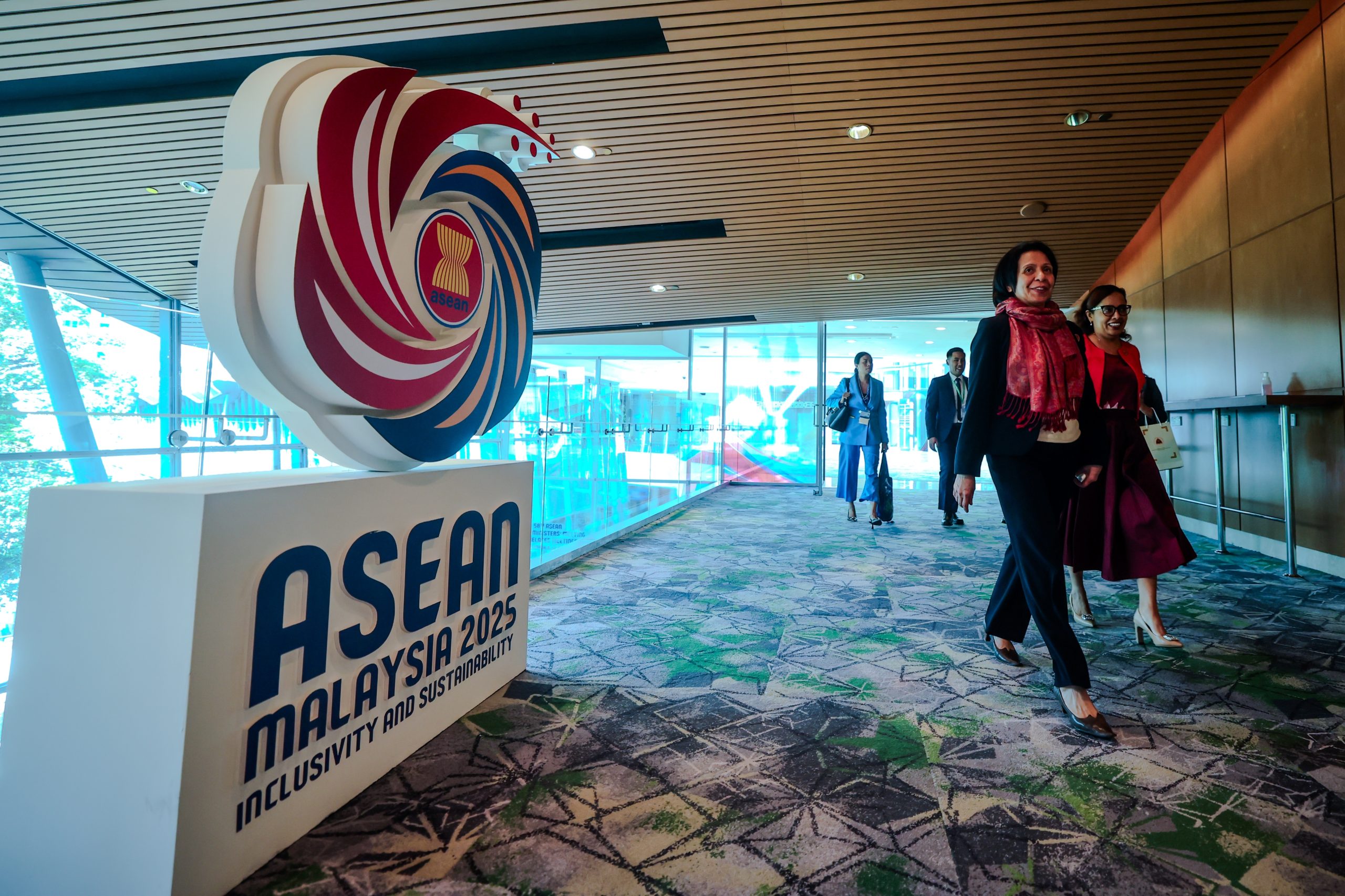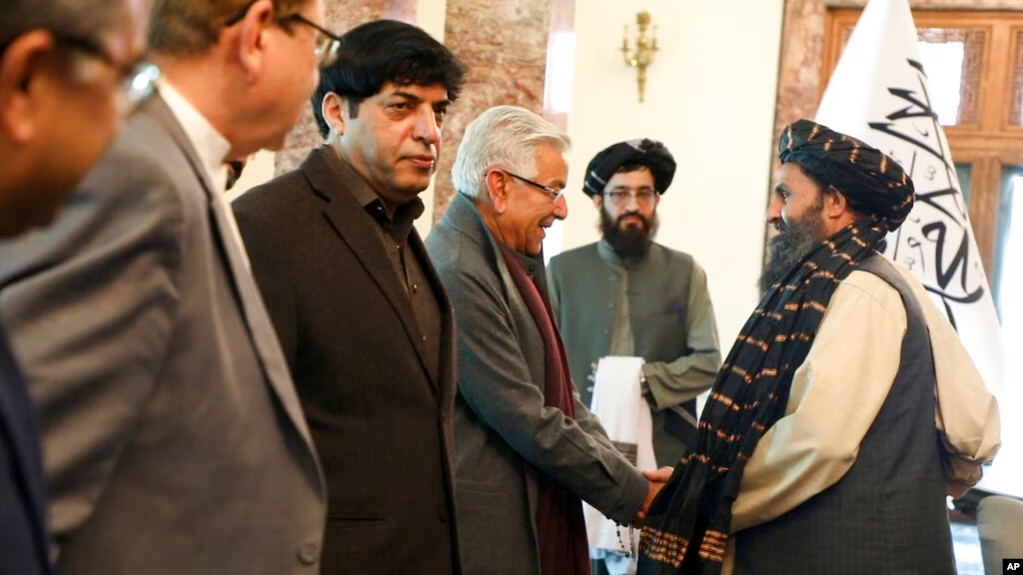
After 18 months of siege marked by starvation, targeted killings, and sexual violence, El Fasher – the capital of North Darfur – fell to the Rapid Support Forces (RSF). As of the time of this writing, the Sudan Armed Forces (SAF) control most of the north, east, and central regions, including the capital Khartoum and the wartime capital of Port Sudan, while the RSF control the western region of Darfur and most of Kordofan.
The offensive that led to the fall of El Fasher occurred just days after a meeting between the United States, Saudi Arabia, Egypt, and the United Arab Emirates (UAE) meant to discuss how to pressure the conflict parties into a three-month truce. With the capture of the city, house-to-house searches, arbitrary detentions, and summary executions have become the new reality.
To contextualize the fall of El Fasher, and understand why proposals for peace repeatedly failed over the course of the war, one needs to consider the various and often competing interests that regional and international powers have in Sudan. In fact, while acknowledging the importance of internal dynamics in the war’s onset and continuation – namely the competition for power between Hemedti and al-Burhan after a failed political transition – understanding Sudan as the theatre of foreign meddling is not less important to make sense of what has been happening in the country.
Saudi Arabia and the UAE
Sudan’s rich natural resources, its 850-kilometer shoreline on the Red Sea, and its strategic position at the crossroads of Sub-Saharan Africa and the Arabian Peninsula make it especially attractive in the eyes of regional powers in the Gulf. The United Arab Emirates (UAE) and Saudi Arabia, in particular, have been providing significant support to the warring parties, seeing Sudan as key to exert their influence in the Red Sea region.
Saudi Arabia’s close ties with Sudan are nothing new. When in March 2015 Riyadh entered the war in Yemen against the Houthi rebels, the latter were in control of western Yemen and could bring in weapons from East Africa. Saudi Arabia, then, tried to obstruct those transfers of military equipment by forging cooperative relations with East African countries. Sudan, which was back then led by Omar al-Bashir, sent soldiers to fight in Yemen against the Houthis having at a certain point as many as 40,000 soldiers in the country.
Today, Saudi Arabia is supportive of the Sudanese Armed Forces (SAF), as it views stability in the Red Sea region as a matter of national security. In fact, instability in Sudan risks threatening key projects at the heart of Saudi Arabia’s Vision 2030, such as NEOM. Instability in Sudan also threatens Saudi Arabia’s food security investments in the country, which include large-scale projects for cultivating cereals and rice, improving irrigation, and implementing modern farming techniques.
Like Saudi Arabia, the UAE also sees Sudan as an opportunity to expand its political influence in the Red Sea region. However, it has taken the opposite side, using its networks in countries such as Chad, Central African Republic, and Libya to provide weapons and supplies to the RSF. Back in May, Sudan’s Security and Defence Council declared the suspension of diplomatic relations with the UAE over its backing of the RSF and earlier in March Sudan even brought a case against the UAE to the International Court of Justice, accusing the UAE of complicity in genocide in West Darfur.
Beyond the pursuit of regional influence, Sudanese gold and agricultural products are other factors that lie behind the UAE’s support for the RSF. The UAE is the major destination for gold illegally extracted from RSF-controlled areas, often passing through transit routes in Chad, Egypt, Ethiopia, Uganda and South Sudan. From the UAE, the gold is then laundered into the global market.
Egypt and Turkey
Egypt has always considered Sudan and its stability as vital for its national security. Since the outbreak of the conflict in 2023, Egypt has tried to mediate a ceasefire and bring an end to the war. However, the war in Sudan has exposed Cairo to a series of crucial challenges that have led it to provide support to the Sudanese Army. One such example is the problem posed to the government by the arrival of hundreds of thousands of Sudanese refugees. In addition, an escalation of the conflict could bring instability to Egypt’s own borders, through the proliferation of arms smuggling and human trafficking.
Egypt’s support for al-Burhan, then, needs to take into account the Nile River issue. Prior to the war, in fact, Egypt and Sudan carried out joint military exercises and coordinated their position towards the Grand Ethiopia Renaissance Dam, which they see as a threat to their water security. They have repeatedly stated that Ethiopia’s unilateral actions regarding the dam are a violation of international law and that they damage downstream nations like Egypt and Sudan.
Similarly, Türkiye has been supporting the Sudanese government to counter the UAE’s hegemonic ambitions and re-establish that close and crucial alliance with Sudan that existed under President al-Bashir. Over the past decade, Türkiye has dramatically expanded its footprint across Africa, as evident in the approach to countries such as Somalia and Niger. Thus, a close relationship with a stable Sudan is in Istanbul’s interest. Since 2024, Türkiye has been delivering its Bayraktar drones to the Sudanese army, allowing the SAF to embark on a series of effective counteroffensives that culminated in the retaking of Khartoum.
Russia
Russia has traditionally supported the Sudanese government on the international scene, most prominently by rejecting the indiction of al-Bashir by the International Criminal Court for crimes against humanity, genocide, and war crimes. Following the ouster of al-Bashir, Russia began to get progressively close to the RSF for the purpose of securing its interests in Sudan.
When the conflict broke out in 2023, Russia initially maintained an ambiguous position whereby it had ties to both sides before ultimately tilting towards the SAF. The Wagner Group (now Africa Corps) has been active in Sudan since 2017, primarily to benefit from resource extraction projects in Darfur. The Africa Corps and the RSF, in fact, have been cooperating in the smuggling of gold from RSF-controlled mines in western Sudan to the UAE. For these reasons, following the war’s onset the RSF received handheld surface-to-air missiles and other weapons from Africa Corps mercenaries via their bases in Libya.
Since taking direct control of the Africa Corps, however, Russia’s government has shifted its support toward al-Burhan, mostly because of an agreement whereby Sudan agreed to allow a Russian naval base in the country in Port Sudan. This is of great importance to Moscow, as it gives it access to the Red Sea.
Conclusion
The fact that Sudan has become a theatre of war where various regional and international powers have been intervening through allies on the ground to respond to their economic, political and strategic interests contributes to explaining why efforts to bring an end to the hostilities have been repeatedly failing. At the same time, however, it seems important to bear in mind that the Sudanese conflict erupted around internal reasons, which means that any realistic resolution will have to address those domestic issues. On November 6, the RSF said that it would accept a “humanitarian ceasefire” proposed by the US-led “quad” mediator group. For their part, the SAF seems to have strict conditions to accept the truce and it remains doubtful that the two parties (and their external supporters) will be able to find an agreement.




